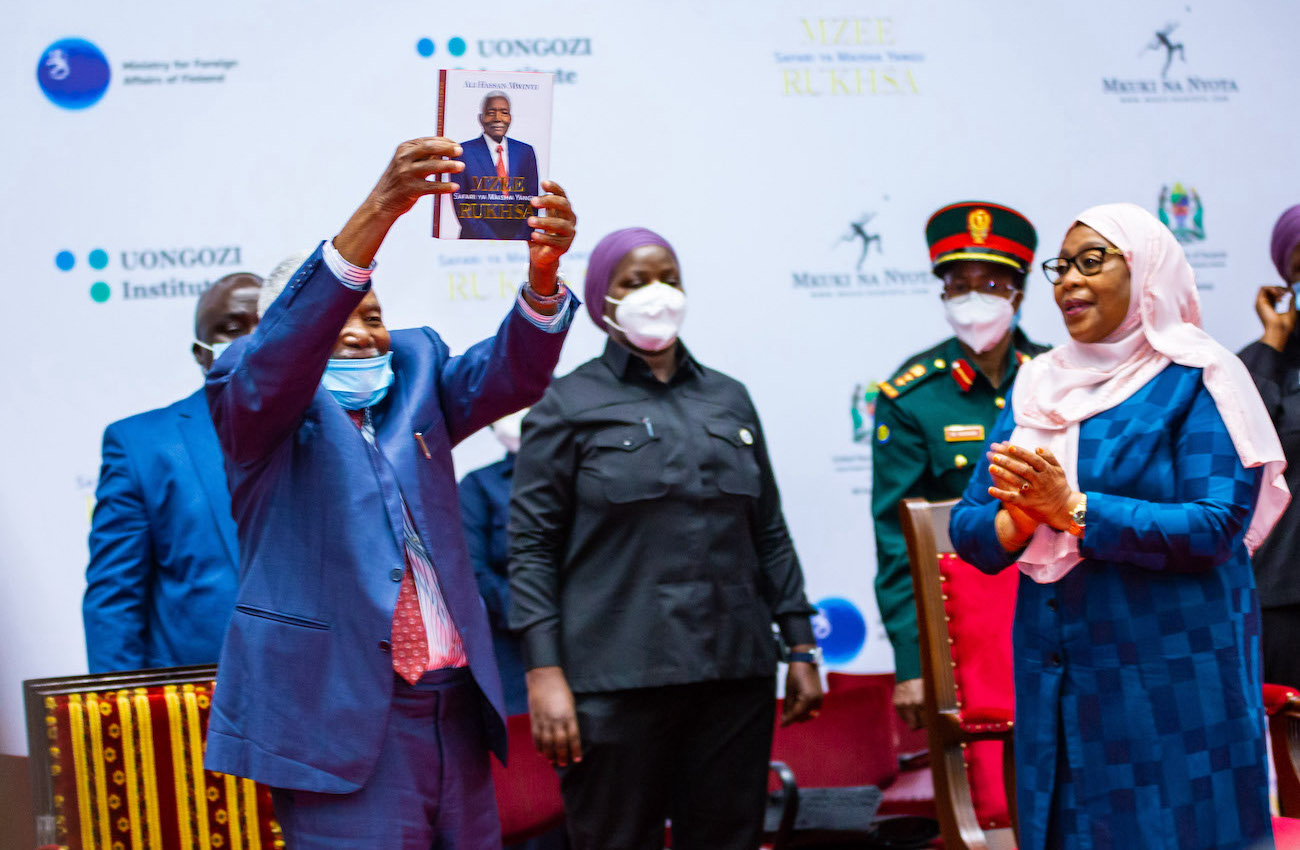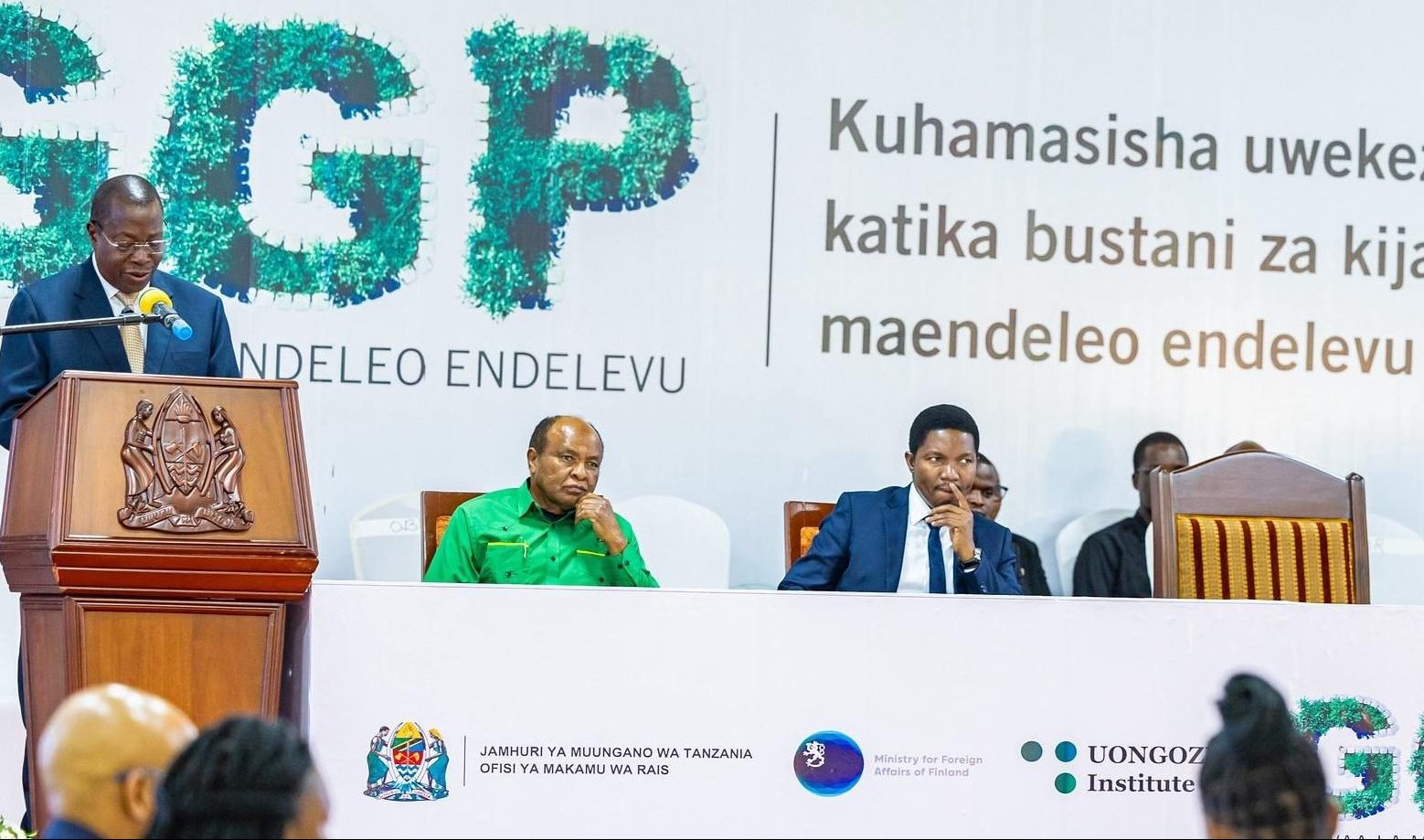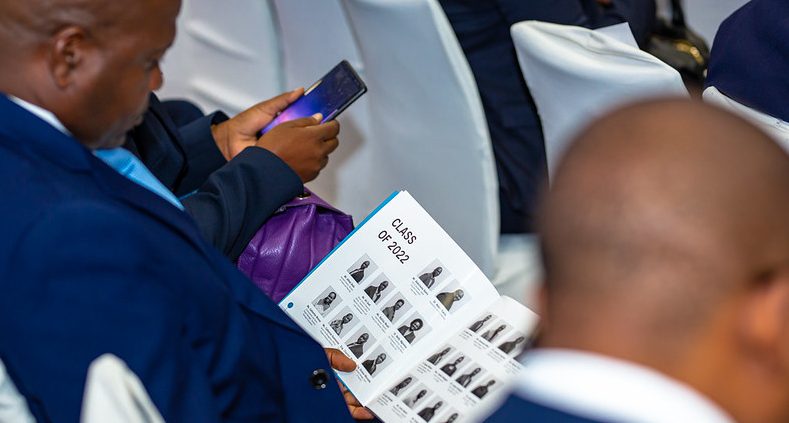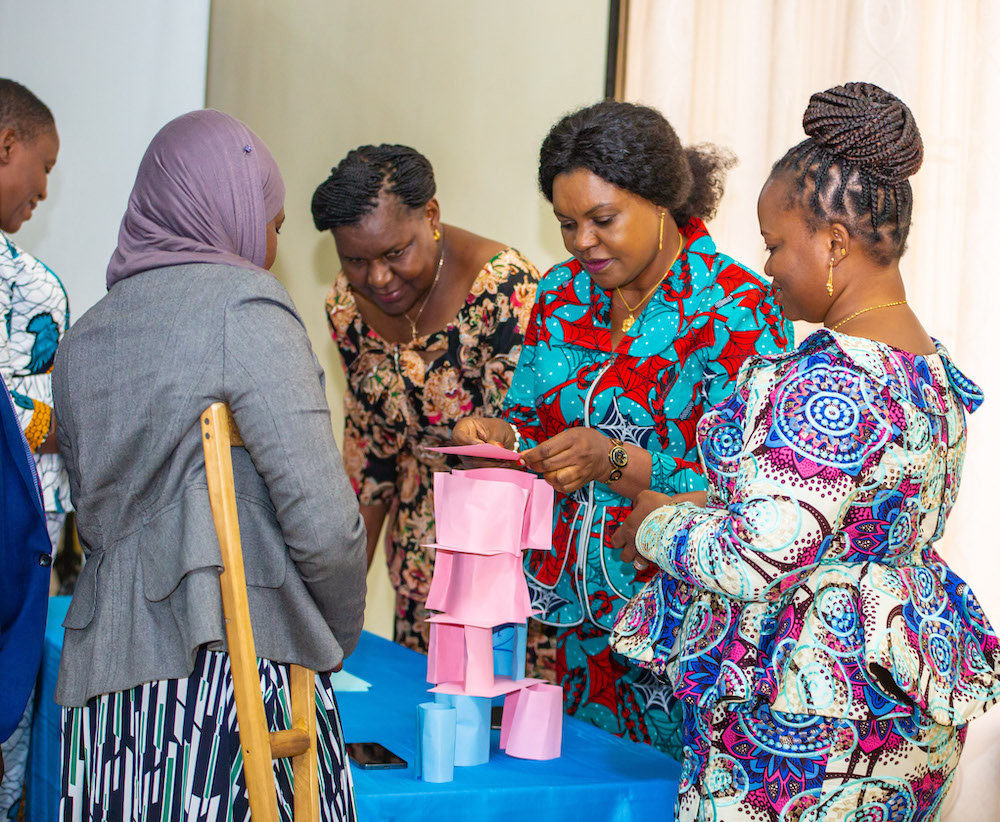Mzee Rukhsa: Safari ya Maisha Yangu’ (‘Mzee Rukhsa: Journey of My Life’), the memoirs by the second President of the United Republic of Tanzania, H.E. Ali Hassan Mwinyi, were launched on 8 May 2021 at a ceremony in Dar es Salaam. The event, officiated by the President of the United Republic of Tanzania, H.E. Samia Suluhu Hassan, was attended by former Presidents of Tanzania and Zanzibar, senior government officials, as well as representatives of the diplomatic corps, the private sector, academia and civil society.
The book, written in Swahili, is the second to be published through UONGOZI Institute’s leadership memoirs project that aims to generate and disseminate new insights on leadership drawn from the wisdom and experiences of distinguished African public figures. The first, ‘My Life, My Purpose: A Tanzanian President Remembers’ by the late former President Benjamin William Mkapa, was launched in November 2019.
‘Mzee Rukhsa’ embodies H.E. Mwinyi’s unique memories from his early years in the Pwani region of Tanzania; later education in Zanzibar and England; his time as a civil servant; through to being elected as President of Zanzibar and President of Tanzania.
The former head of state begins his book with a quote from English dramatist William Shakespeare:
‘Be not afraid of greatness. Some are born great, some achieve greatness, and others have greatness thrust upon them.’
This was selected by the former president as the words to reflect his own experience of holding high office. Having been born into a low-income, rural family, becoming president was the last thing he had envisioned for himself. I came into the world without greatness,’ he writes ‘I never intended to seek for it, but it was bestowed upon me by God and Tanzanians.’ He reckons that earning people’s trust to lead their nation is one of the greatest honours anyone can receive.
Through his book, the former President wishes to offer Tanzanians a better understanding of their history as well as the context in which certain decisions were made for the country during his presidency.
President Suluhu Hassan considers H.E. Mwinyi as the ‘Father’ of Tanzania’s revolution. During the launching ceremony, she observed:
‘When President Mwinyi entered office, the country was experiencing a deep recession brought about by various factors, including the rise of oil prices in 1973, drought in 1975, the collapse of the East African Community, the Kagera war and tough conditions imposed by development partners plus international financial institutions. All of these resulted in an acute shortage of dollars, leading to lack of essential commodities such as food items, clothes and spare parts. He was the one who led economic reforms that ushered in a free market economy… and political reforms that introduced a multi-party system in 1992. Therefore, I think it’s right to say that President Mwinyi is the father of our revolution.’
Having read ‘Mzee Rukhsa’ twice, President Suluhu Hassan stated that there are many lessons to learn from it, including the importance of leading with humility, empathy and commitment; as well as the power of owning your mistakes.
Speaking on behalf of the Ambassador, Dr. Timo Voipio, Head of Cooperation at the Embassy of Finland in Tanzania, expressed Finland’s admiration and support to the Institute:
‘UONGOZI Institute has been one of the priorities in Finland-Tanzania cooperation for over a decade. This institution is an excellent tool, under the Office of the President of the United Republic of Tanzania, to build and strengthen the capacity of leaders in the country as well as on the continent.’
Dr. Voipio further remarked that currently, the Finnish Government prioritises a women’s leadership programme in support to the Institute as part of its efforts to advance gender equality in leadership.
Sharing about the project, the Institute’s CEO, Mr. Kadari Singo, said:
‘Our journey began about four years ago after convincing H.E. Mwinyi to write a book of his leadership journey to inspire a new generation of leaders. Some people may be unaware of this, but books take time to write. It took about three years to research then write the book and another year to go through the publishing process.’
Mr. Singo thanked the Government of Finland whose support has been instrumental in implementing this as well as other projects and programmes by the Institute. Finally, he acknowledged corporate sponsors that covered the air freight costs to ensure more than 50% of the copies arrived in time for the book launch. These included: CRDB Bank, Bakhresa Group, Clouds Media Group, Superdoll, Four Points by Sheraton, COMNET, ATOGS and GBP Tanzania Ltd.
‘Mzee Rukhsa’ has been praised as a ‘compelling and eloquent’ book that will appeal to readers both within Tanzania and beyond. It is available in various book stores in Mainland Tanzania and Zanzibar, as well as online at www.africanbookscollective.com. It is also available to the users of the Institute’s Resource Centre in Dar es Salaam and Dodoma.






